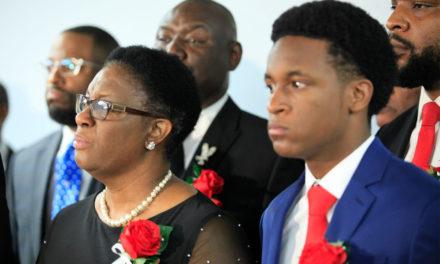It’s November 8th, and two days ago, we had an election in the United States that some believe was the most important election of our lifetimes. The past two years have been exhausting, divisive, and deeply troubling – even traumatic – for many, particularly those who’s very lives and livelihoods have been targets of this administration.
At The Winters Group, we have been unapologetic in our stance against the current president, his policies, and his politics. We believe in political diversity and in diversity of thought, but we also believe that there are limits and that we have the responsibility to hold ourselves and others accountable as people working towards inclusion, and ultimately equity. Inclusion does not grant license to fearmongering and hate speech, and in this series, we have tried to express that inasmuch as inclusion is political, it is about advocating for people who have experienced exclusion for the purpose of creating equitable outcomes.
We’ve attempted to expand the idea of what politics is from just participating in elections to participating in conversations, movements, and efforts in our daily lives to expand our own and others’ worldviews to include the stories and needs of people different from ourselves.
The politics of inclusion is about participating in conversations, movements, and efforts in our daily lives to expand our own and others’ worldviews to include the stories and needs of people different from ourselves. Share on XNow, we are in the aftermath of a huge political moment, and it’s time to regroup. No matter who you voted for, this is a moment to take a step back, look at the big picture of this moment, and think about what we will need moving forward.
Where do we start?
In the coming weeks, we know that as a result of this election, tensions may rise, and we want to equip you with strategies to navigate that tension while continuing to stand uncompromisingly for inclusion.*
- Include a “one-word check-in” at your next meeting. Provide an opportunity for team members to acknowledge the challenging, positive, or other emotions they may be navigating on a personal level. While this may not be a central focus of the meeting, pausing to name these dynamics, even briefly, can relieve some pressure and help workers to better understand one another.
- Re-affirm organizational values. In a divisive socio-political climate, it’s easy to focus on topics where we may disagree with others. There are times and places for these discussions, but also take this opportunity to remind everyone of the values you share and mission you are working toward collectively. Furthermore, meaningful organizational commitments to equity and inclusion can help everyone feel more supported and affirmed.
- Leverage resources and expertise. Many organizations offer resources related to well-being, mediation, and conflict resolution. Look into the opportunities available in your organization, see where you may be able to incorporate them, and encourage your coworkers to do the same. Additional resources are always available on the web.
- Devote time to personal reflection and recognize individual needs. Taking time to actively reflect on what you are feeling, why, and how it may affect your presence in different spaces will allow you to identify your own needs and challenges, as well as be more understanding of others’ needs.
- Center conversation on people when engaging in politics. When politics surface in the workplace or other settings, make an effort to center discussion around individuals and communities rather than opposing sides. Affirming the humanity and experiences of people is a good place to start in recognizing the nuances that go into everyone’s political perspectives and decisions.
- Act within your sphere of influence to advocate for marginalized people in the workplace. While we can continue to hold our representatives accountable, regardless of the election outcomes, we can also hold ourselves and our colleagues accountable to supporting and advocating for marginalized individuals and communities in our workplaces. Continue to be mindful of power dynamics at play in your organization and do your part to respond by making space for and supporting those who likely face related challenges.
Employee fulfillment in the workplace is essential to promoting engagement and retention; when employees feel seen, supported, and valued, they respond with commitment to their organization. Hence, inclusion really is political.
But that’s just the beginning. As we’ve shared, the politics of inclusion exists at the dinner table, in the workplace, in our consumer habits, and in any other areas of our life in which our actions have or could have an impact of the inclusion of others.
And if we could suggest just one goal as we move towards the end of a long year: Find community. Find a community of people that can support you in making sense of the world around us, as crazy and volatile as it seems right now. Find people who, regardless of whether or not they agree with your opinions, can hold you accountable to putting those ideas into action and to making sure those ideas are inclusive and centered on marginalized people.
And, maybe most importantly, find a community to celebrate with. For example, in our community at The Winters Group, we’re celebrating that more than 100 women were elected to the U.S. House on Tuesday – including a Somali American, a Muslim woman, a Black millennial woman, and a Native American woman who will be her states first LGBT representative. As we know, when diversity is at the table, diverse perspectives, experiences, and truths are considered in our laws and policies, and that is absolutely something to celebrate.
The election may be over, but the politics of inclusion continue as we work towards equity. It’s time to regroup, consider our role and our sphere of influence, and find community to help us in the long game.
The election may be over, but the politics of inclusion continue as we work towards equity. It’s time to regroup, consider our role and our sphere of influence, and find community to help us in the long game. Share on X*These strategies can also be found in our quarterly mailer.




















